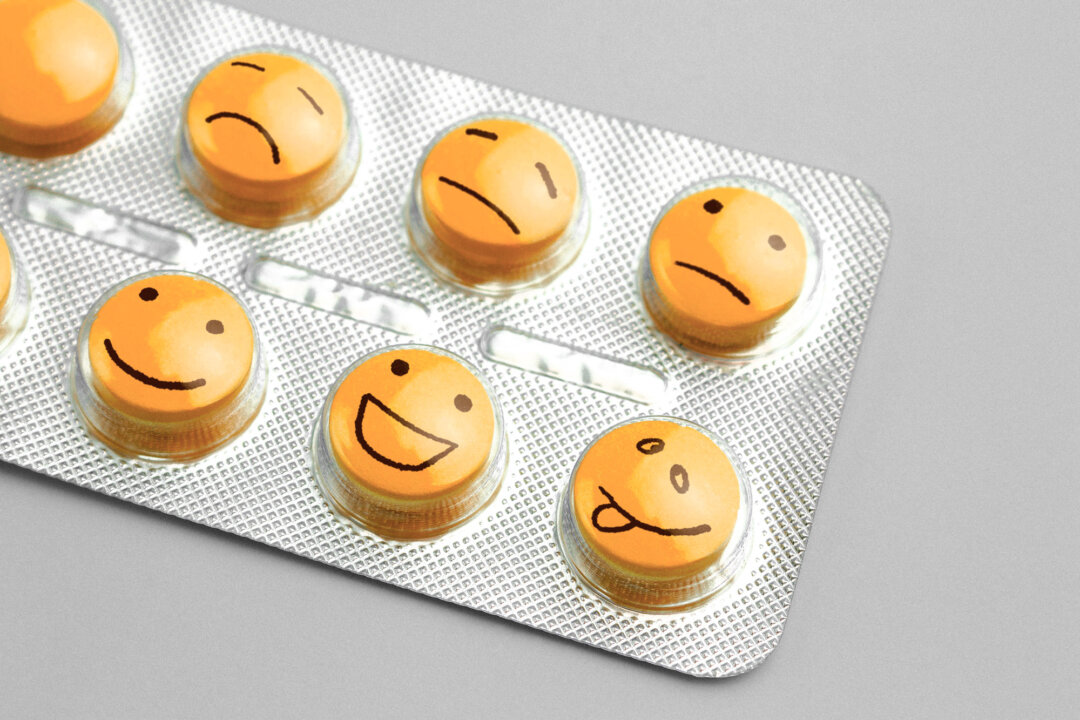Placebos may be more effective for some psychiatric conditions and less effective for others, a new study suggests. Compared to patients with panic disorder or schizophrenia, those with depression or attention-deficit/hyperactivity disorder (ADHD) are less likely to drop out of clinical trials when assigned to the placebo group. “The psychological and emotional state of patients can significantly affect their response to placebo treatment.
Patients who have more positive expectations might experience more improvements compared to those who do not,” Dr. Michael McGrath, psychiatrist, chief clinical officer, and medical director at The Ohana Hawaii rehab center, told The Epoch Times. Researchers analyzed information from 90 high-quality clinical trials involving 10,056 participants.

They found that patients with certain psychiatric conditions may observe a larger placebo effect, as demonstrated by lower dropout rates in clinical trials. Patients with post-traumatic stress disorder, major depressive disorder (MDD), and ADHD reported the lowest dropout rates of 17 percent when put on a placebo. In contrast, schizophrenia had a dropout rate of 41 percent, followed by panic disorder and mania, which also had high rates.
The researchers found that most participants dropped out of studies due to adverse side effects in obsessive-compulsive disorder and panic disorder studies, while the fewest dropouts were seen in MDD and ADHD trials. Researchers found that schizophrenia and mania showed higher dropout rates, likely because patients saw no to few improvements while on placebo drugs, while patients with ADHD and MDD reported lower dropout rates due to perceived benefits. The main adverse effect observed with placebos was a lack of therapeutic benefit, with variations depending on the specific diagnosis.
When patients experience no improvement in their symptoms, this can be discouraging and lead to discontinuation of treatment. The next biggest factor was the “nocebo effect.” This is the opposite of the placebo effect, which occurs when a negative outcome occurs due to a belief that the intervention will cause harm.
Researchers said that the high dropout rates seen in studies on schizophrenia and mania might be due to the severe symptoms these patients experience, making it hard for them to stick with placebo treatment. Patients with psychotic disorders—such as schizophrenia—are especially influenced by their expectations and mistrust of medications, Dr. Carole Lieberman, a psychiatrist and bestselling author, told The Epoch Times.
“Paranoid subtypes, in particular, tend to suspect harm from treatment, leading to high dropout rates,” she said. “Panic and manic patients also abandon trials quickly because they seek immediate relief and lack the patience for delayed outcomes.” In contrast, Lieberman added, those with major depression often remain enrolled longer because they are more willing to believe that any treatment might finally help, even if it’s a placebo.
However, in the case of patients with obsessive-compulsive disorder, they tend to exit due to hypersensitivity to physical changes and their aversion to unpredictability. In cases of panic disorder, the intense distress felt during attacks could also be a significant factor in why patients leave the study, according to researchers. A person’s belief in the treatment can also lead to changes in their behavior, such as improved diet, exercise, or rest, contributing to symptom relief.
The researchers found that when people experienced pain relief from a placebo, a specific area of their brain showed more activity. The increased activity helped the researchers predict who was feeling the effect of the placebo..
Health

Placebos Work for Some Psychiatric Conditions, but Not Others, Study Finds

New research shows depression and ADHD have lower placebo study dropout rates than schizophrenia and panic disorder.















